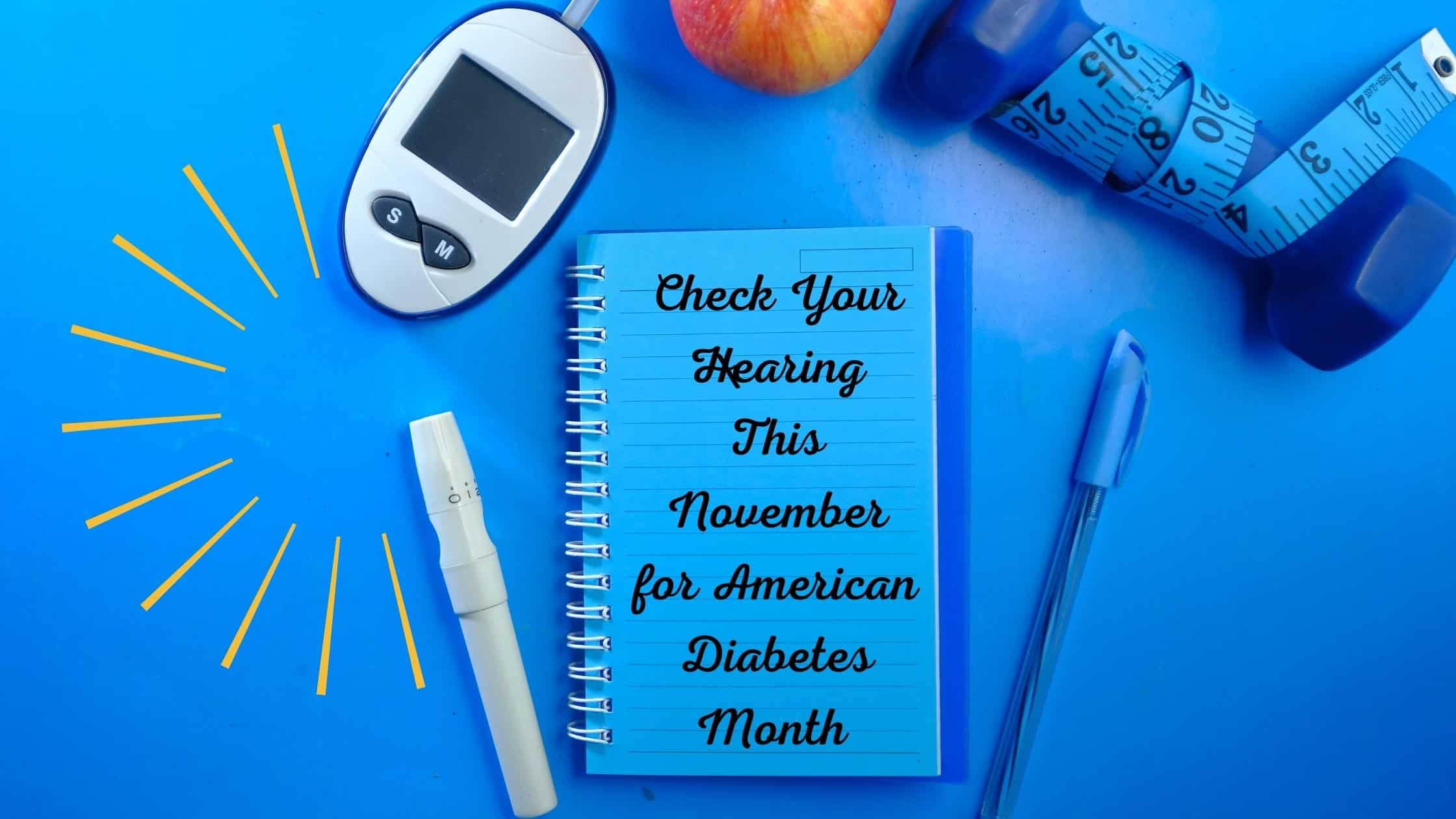
Hearing loss happens for many reasons. Most of us know that hearing loss can occur when you are exposed to loud noises, or due to old age, but did you know that hearing loss can be caused by diabetes? This November is American Diabetes Month – an annual campaign to raise awareness and stress prevention of this devastating disease.
This year’s theme focuses on prevention. The CDC estimates that 32.4 million people struggle with diabetes in the US and this number is expected to rise significantly in the next 30 years unless there is a major shift in the way people regard this condition. Even more, alarming the CDC estimates that 88 million people have the early sign of diabetes – known as prediabetes – and over 80 percent don’t even know it. Screening for diabetes and prediabetes can protect you from the dangerous side effects of diabetes, including hearing loss.
Understanding Diabetes
There are a few different types of diabetes:
Type 1 Diabetes: Type 1 diabetes is an autoimmune disease found mostly in adolescence, in which the body cannot produce insulin or very little. Insulin is a hormone created in the pancreas, which aids in the absorption of blood sugar (glucose) into the cells throughout the body. Blood sugar provides energy to cells that make up muscles and tissues. When the cells don’t receive blood sugar, the excess can cause damage to the heart, kidneys, eyes, limbs, ears, and more.
Type 2 Diabetes: The most common form of diabetes is type 2 which composes around 90 percent of all cases. Type 2 diabetes occurs when the pancreas cannot create enough insulin, or it cannot be absorbed properly into the cells. It can develop in people of all ages, though it usually arrives later in life – around 45 years or older.
Diabetes and Hearing Loss Connection
There is no consensus over why diabetes may cause higher rates of hearing loss. However, several studies have identified that diabetes increases the risk of hearing loss by at least 50%. In 2013 a Japanese meta-analysis published in the Journal of Clinical Endocrinology & Metabolism, combined research on previous studies connecting diabetes and hearing loss, conducted from 1977 to 2011.
The study was able to determine that people with diabetes were 2.15 times as likely as those without the disease to have hearing loss. Shockingly the study identified that people younger than 60 years old were at a higher risk of hearing loss than people other, though specialists are still in contention as to why. The results showed that those 60 and younger with diabetes were 2.61 times more likely to have hearing loss, while the risk for those older than 60 was 1.58 times higher.
How Diabetes Affects Hearing
Over time, high blood sugar levels can damage small blood vessels and nerves throughout the body, including in the inner ear. Our ears collect sound and are ultimately responsible for delivering this information to the brain. The ears do this by way of tiny hair cells which convert audio vibration into electrical impulses which are delivered to the auditory cortex. Here speech is interpreted, sounds identified, and the location of sounds is determined. However, when these cells are depleted due to high or low blood sugar, it can cause permanent hearing loss.
The Importance of Hearing
Hearing loss may not seem as severe as some of the other side effects of diabetes, such as heart attack, stroke, amputation, kidney failure, or blindness but it is an important part of keeping you active. When we struggle to hear it can be exhausting and inhibits people’s likeliness to try new things, go new places, and stay active. In its place, chronic depression and a sedentary lifestyle can develop. One way to fight diabetes is to stay active. It is recommended that 30 minutes of exercise at least 3 days a week can burn off blood sugar levels and keep your body and cells healthy and in shape.
Treating Hearing Loss
If you’ve been diagnosed with diabetes then it is essential that you also test for hearing loss, as your chances become doubled. There are many reasons to keep your blood sugar in your target range—protecting your hearing is just one of them. This month, talk to your doctor to find out what you can do to manage your diabetes and protect your hearing.
